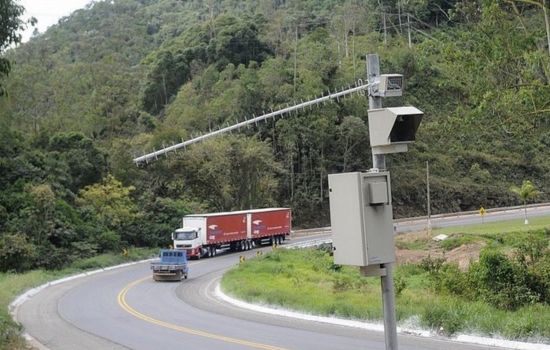Not literally, of course. But you do lose something much more valuable…
You tranquillity.
That awkward moment when you suddenly slow down. The paranoia of constantly checking the speedometer. The anxiety of not knowing if he's caught you or not.
Doesn't it seem absurd to you to live like this in 2025?
See also
- Your Name, Decipher the mystery hidden in your letters
- Transform your mobile with Night Vision
- Knitting with Technology
- Get Moving! Apps for Dancing
- Secure, real-time tracking
The silent epidemic of road stress
Millions of drivers live in a constant state of alert. Not because of real dangers on the road, but because devices designed to raise money.
The numbers don't lie:
- 7 out of 10 drivers have received at least one speeding ticket
- Radar stress increases the chances of an accident in a 23%
- Spain collects more than €300 million annually in speeding fines alone.
The result? Roads full of drivers. nervous, distracted and frustrated.
But there is an elegant solution to this modern problem.
The revolution is in your hands
Smartphones have democratized something that was previously exclusive to professional drivers: insider information about the road.
You no longer need:
- Memorize radar locations
- Relying on poor signage
- Driving with constant fear
- Paying "surprise" fines
The collective intelligence has created the perfect antidote to road uncertainty.
How does this technological magic work?
Real-time crowdsourcing
- Thousands of eyes watching over you
- Verified Instant Reports
- Global network that never rests
Predictive algorithms
- Patterns of police behavior
- Peak Busy Times
- Smart alternative routes
Precise geolocation
- Military GPS adapted for civilians
- Accuracy of less than 5 meters
- Offline functionality when it matters
The Three Digital Musketeers
Waze: The rebel who changed the rules
Waze didn't emerge from a corporate lab. It was born out of citizen frustration with traffic and unfair fines.
His revolution:
- Transformed drivers into collaborators
- Democratized privileged information
- He created the largest legal road spy network in the world
Why it works:
- Constantly updated by real users
- Smart contextual notifications
- Gamification that encourages participation
His Achilles heel:
- Mobile data addiction
- Initial learning curve
- Dependence on critical mass of users
Google MapsThe giant who learned to listen
It took Google years to admit it needed Waze features. When it finally did, it created a powerful fusion.
Your winning strategy:
- Simplicity without sacrificing functionality
- Native integration with Android
- Global infrastructure support
Competitive advantages:
- Stability proven on millions of devices
- Optimized resource consumption
- Familiar interface for any user
Obvious limitations:
- Less specialization in detection
- More conservative community reports
- Less aggressive updates
Radarbot: The specialist who is not distracted
While other apps try to do everything, Radarbot focuses on a single mission: detect radars better than anyone else.
His philosophy:
- Specialization over generalization
- Quality over quantity of features
- Accuracy on popularity
Unique strengths:
- Manually curated database
- Alerts categorized by radar type
- Robust offline operation
Important considerations:
- Smaller user ecosystem
- Inconsistent regional updates
- Less social interface
The art of choosing your digital companion
There is no such thing as a "perfect" app for everyone. There is an app perfect for you.
For the urban driver
Cities require agility and social informationWaze dominates this territory with reports of:
- Improvised mobile radars
- Surprise police checks
- Last-minute changes in regulations
For the road traveler
Long routes need stability and confidence. Google Maps offers:
- Robust navigation without interruptions
- Integration with travel services
- Lower battery consumption on long journeys
For the speed perfectionist
Extreme precision requires pure specialization. Radarbot provides:
- Alerts differentiated by device type
- Granular distance settings
- Network-independent operation
Secrets that developers don't tell you
The psychological factor
Use radar detectors change your mindset behind the wheel. You become a more conscious driver, not just a smarter one.
Studies show:
- 15% fewer total violations
- 22% best response to emergencies
- 31% reduction in stress while driving
The speed paradox
Drivers with speed cameras rarely significantly exceed limits. Why? Informed trust replaces blind paranoia.
The network effect
Every user improves everyone's experience. Your reports save strangers. Theirs protect you. It's collaborative capitalism at its best.
Advanced strategies for expert users
Multi-layer configuration
- Main app for base navigation
- Secondary app for specialized alerts
- Backup app for areas without coverage
Smart schedules
- Mobile radars: most active Monday-Friday 7-9 AM and 5-7 PM
- Special controls: weekends on tourist roads
- Night operations: Friday-Saturday after midnight
Pattern analysis
- Same locations tend to repeat operations
- Seasonal changes in police strategies
- Correlation between special events and controls
The dark side that no one mentions
Technological dependence
Some drivers lose natural observation skills. They become blind people without a screen.
False sense of invulnerability
Technology fails. Reports are wrong. The final responsibility is always yours..
Impact on public revenue
Fewer fines mean less revenue for local governments. Some municipalities have intensified controls as an answer.
Myths and realities of the detector world
MYTH: "Apps are illegal"
REALITY: Using public information about fixed locations is completely legal in Spain.
MYTH: "They're only good for speeding"
REALITY: They improve general awareness, reduce accidents and optimize traffic flow.
MYTH: "The police can detect that you use them"
REALITY: These are normal apps that use standard GPS. They don't emit detectable signals.
The future is already knocking at the door
Predictive Artificial Intelligence
Algorithms that predict where radars will appear based on:
- Historical patterns
- Local events
- Real-time traffic behavior
Vehicle integration
Connected cars that share information automatically:
- Radar detection by vehicle sensors
- Instant car-to-car communication
- Integrated dashboard alerts
Augmented reality
Information overlay on smart windshields:
- Visual alerts without taking your eyes off the road
- Holographic navigation
- Immersive contextual data

Conclusion
We live in the golden age of informed drivingNever before have you had access to so much real-time information about what awaits you on the road.
Waze connects you with a global community of caring drivers. Google Maps offers you reliability backed by the world's most advanced technology. Radarbot provides you with the specialized precision you need for critical situations.
The question is not which one to use, but how much longer are you going to drive blind?.
Technology has democratized power. You no longer need to be a professional driver to have insider information.
You just need to be smart enough to use it.
Download. Configure. Drive.
The future of the smart driving start with your next trip.
Are you ready to join the silent revolution?









